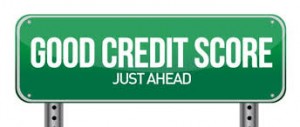
But determining a “good” credit score can be tricky. Several agencies have different ways of scoring and there are more than one schools of thought on the subject. Fortunately, you can check your own credit score and it won’t adversely affect that score.
Each lender develops its own credit score range. Knowing that is important when you want to know what your numbers mean. Among the various scoring models and the range they use are:
FICO Score, 300-850; VantageScore, 300-850; VantageScore scale (versions 1.0 and 2.0)m 501-990; PLUS Score, 330-830; TransRisk Score, 100-900; Equifax Credit Score, 280-850.
With all of these scores, the lower the number you have, the higher the risk to a lender. Those with the higher figures are more likely to obtain loans, get discounts on insurance and other financial advantages. For instance, if your FICO score is 840, you are near the top of the range and your credit is considered “superprime.” In essence, if the range is 301 to 850, the following categories would emerge. Excellent credit, 750-plus; Good Credit, 700-749; Fair Credit, 650-699; Poor Credit, 600-649 and below.
Within this range, however, lenders have their own definitions of what they will accept. Some who want to qualify a larger number of borrowers may be willing to look at a credit score of 680 or higher, while one that wants to be more selective may up the minimum score to 750 or higher. Some lenders will raise the interest rate for borrowers below a score of 700.
You can get a free Credit.com account simply by applying. It includes the score and a personalized action plan to improve it. It is free and updated every 30 days.
The only way to assure that your credit score is good is to check. Having paid bills consistently and on time does not fully guarantee a good score. Requesting a score once a month provides you with a breakdown of the factors that affect your score.
In general, the score factors in payment history, debt levels and the age of credit accounts. The objective is to predict how new and existing customers will handle credit.
A good score will facilitate your purchase of a home or car, opening new credit accounts and getting the best interest rates. Over time, you will pay less for the use of lent money. Bad credit could add as much as $90,000 to a home, for instance.
It pays to know where you stand credit-wise and to work to improve your score if needed.